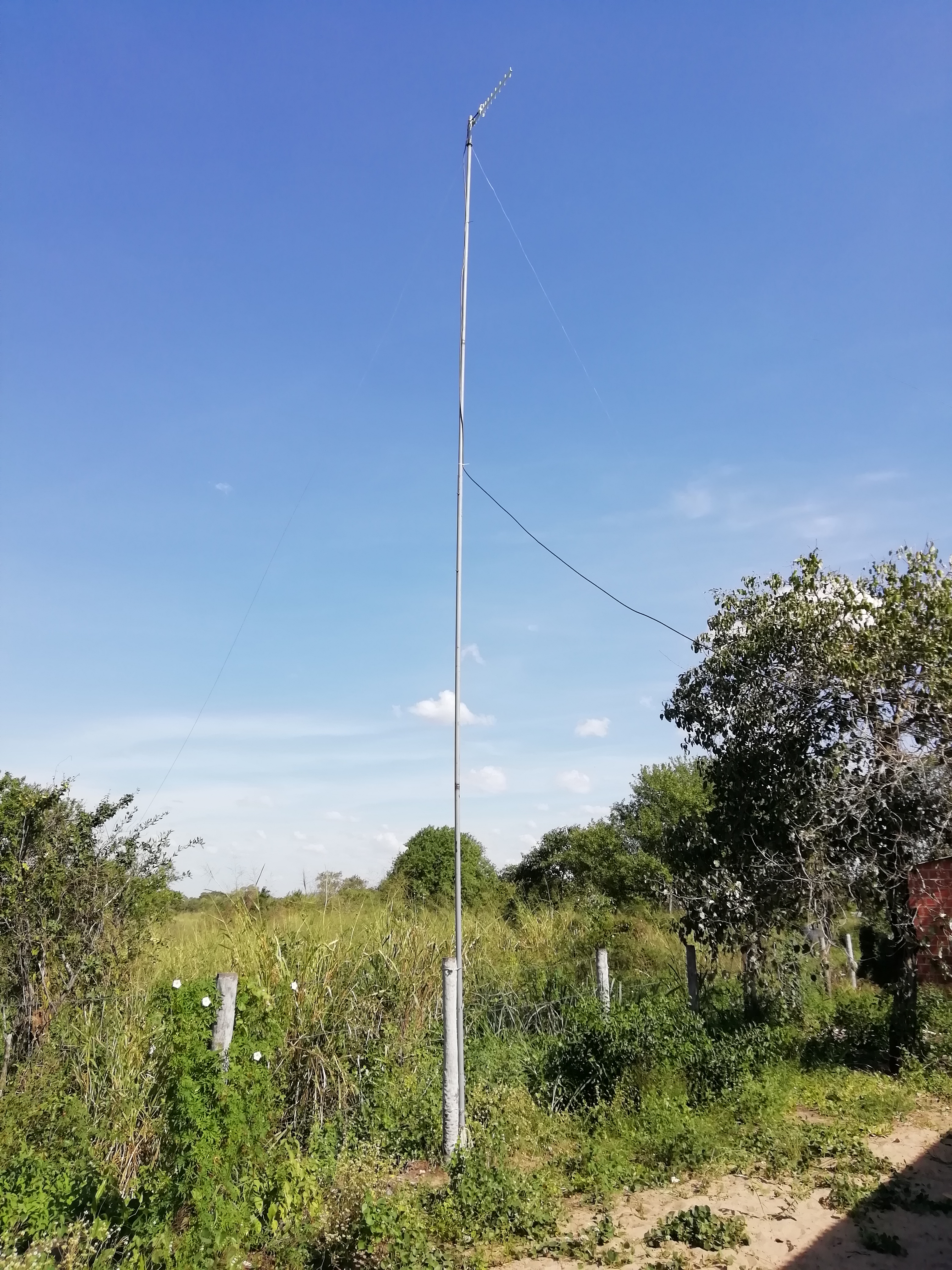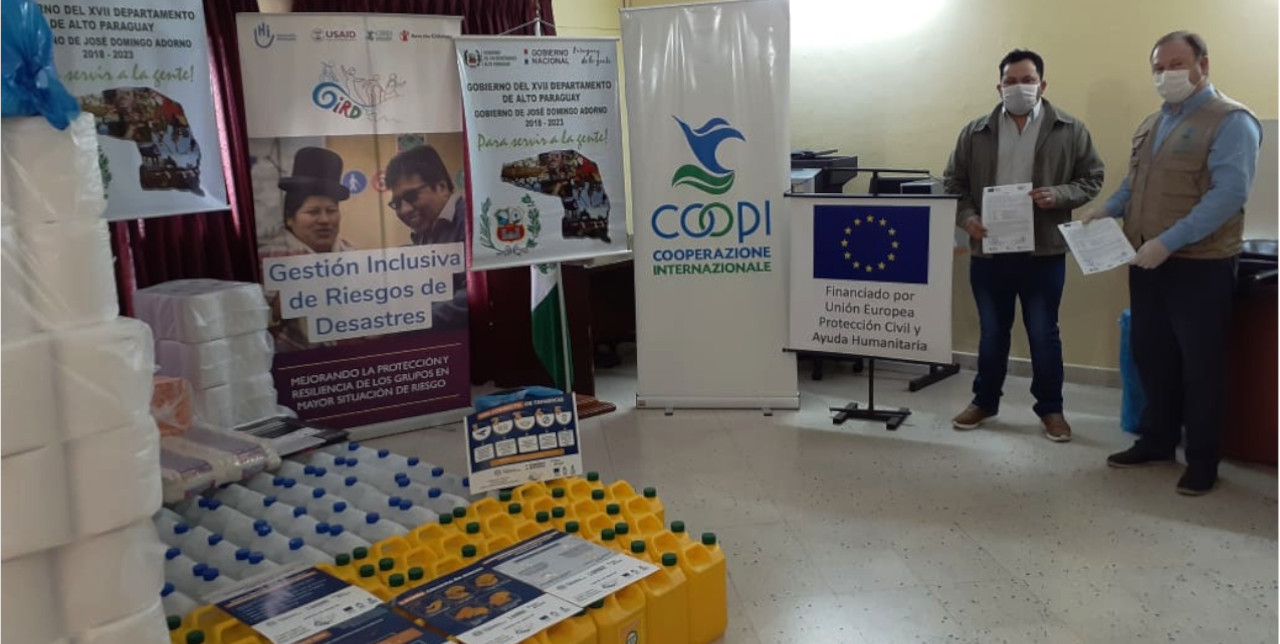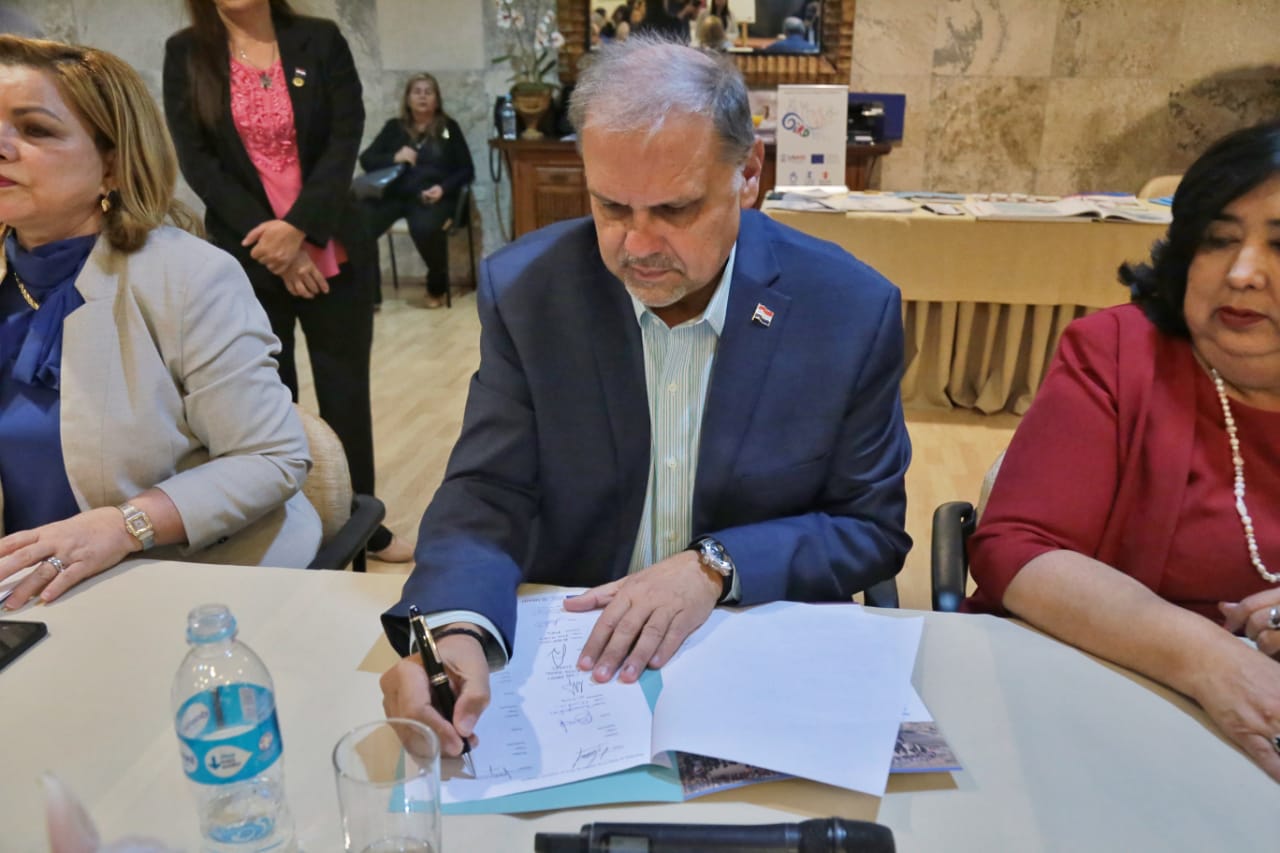18-06-2020 | di COOPI
Paraguay. Tight collaboration with the institutions to answer to Covid-19
In Paraguay, the tight collaboration developed with the institutions is fundamental in facing the pandemic emergency. In the latest months, despite the quarantine imposed by the government, COOPI kept supporting the institutions to guarantee access to information and to sensitize the most vulnerable communities.
Activities were implemented in the framework of the risk and disaster management projects implemented by COOPI and funded by the European Union Humanitarian Aid and by the Office of U.S. Foreign Disaster Assistance.
Thanks to the collaboration with the Secretariat for the Rights of Persons with Disabilities, COOPI produced several video spots to spread advice and good hygiene practices to adopt in this period. Also, a local operator translated all the videos in sign language.
Video : Gramo COVID-19 Inclusión - Tina Alvarenga - autochthonous people and COVID-19
COOPI installed mobile phone signal amplifiers in three different autochthonous communities residing in the remote Department of North Paraguay. The amplifiers will enable the communities to receive messages and calls and to access to the net essential for online education.

Amplifier installed by COOPI
Thanks to the project “Multi-country approach to strengthen inclusion and protection in disaster risk management capacities of public institutions, authorities, and civil society in Colombia, Peru and Paraguay” funded by the European Union Humanitarian Aid and the project “ Latin America Region Inclusive Disaster Risk Management in Natural Disaster-Prone Areas: An Innovative Approach to Including Most at Risk Groups PHASE II – Consolidating and scaling up Inclusive DRM” funded by the Office of U.S Disaster Foreign Assistance, COOPI supports the most vulnerable communities who need a specific approach trying to focus on integration and with the goal of 'leaving no one behind'.
Thanks to the support of the European Union and USAID, COOPI wants to reach the inclusion of the groups who are at risk enhancing the relationships between the institutions and the civil society. In 2018, COOPI elaborated the National Atlas of Disaster Risk of Natural Origin and started studying how to make mapping tools for communities at risk more inclusive. Moreover, it supported the strengthening of the National Table for Promotion and Dialogue on Inclusive Risk Management, an effective tool for the coordination between institutions and civil society. Representatives of the National Secretariats and Ministries (Emergency, Education, Health, Childhood and Adolescence, Women and Rights of Persons with Disabilities) and national civil society usually sit at this table. In December 2019, five ministers together with civil society’s representatives signed a formal commitment to promote inclusion among their priorities, to improve the support provided to the risk groups identified in the National Disaster Risk Management strategy.
Signing the formal commitment, 2019
The projects strengthened the collaboration between the institutions and the civil society. Cooperation is fundamental to implement better measures which can equally include and protect all citizens within the social and governmental system.
In Paraguay, the most vulnerable people such as members of autochthonous communities, women and children, elders, people with disabilities or people living in rural areas (10% of the population in total) still do not have access to basic services. Their conditions worsened in the latest years due to droughts and floods which caused emergencies and isolated entire categories. Thanks to projects like these two, COOPI supports the most vulnerable communities creating inter-institutional collaborations.




 Paraguay
Paraguay
